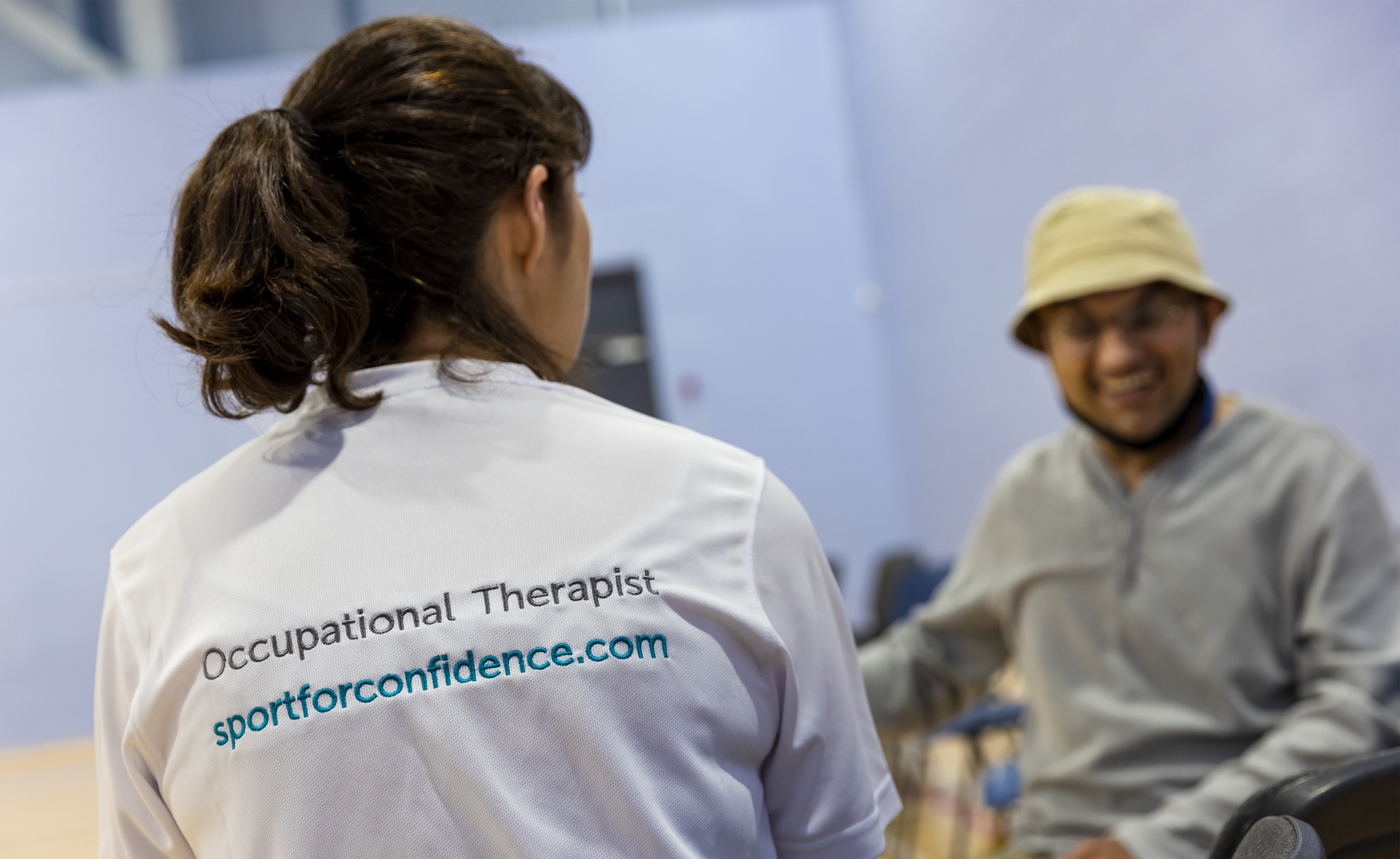Prevention & Enablement Report Evidences Social Value of Physical Activity
Posted on 8th February 2023 at 08:45
Essex’s Prevention and Enablement Model (PEM) Evaluation Report Concludes: the Positive Impact of Embedding Physical Activity Into A Whole System Approach To Adult Health & Social Care Could Deliver £58.72 of Social Value Per £1 Invested.
Key Report Findings
1. Data compared to Sport England’s national Active Lives Survey indicates PEM may have the effect of improving the physical activity levels of a person living with a disability or long-term health condition to comparable levels of the rest of the population. This suggests PEM can play a crucial role in reducing health inequalities.
2. People accessing PEM services show a decrease in self-reported service use (i.e., day care, formal/informal support, GP appointments, 999 calls, and hospital visits). This reduction in service use is estimated to equate to a cost saving of £365.23 per PEM participant, per year.
3. Evaluation performed by State of Life took the 2021 Wellbeing Supplementary Guidance in the Treasury’s Green Book and applied the treasury recommended WELLBY to monetise the wellbeing value of PEM. The difference in life satisfaction between individuals about to start PEM and those one month into the programme is estimated to equate to a monetary value of £22,230 per person per year.
4. Scaling the value of reduced service use and higher life satisfaction to the typical number of unique users in Community Partnerships/Reconnect (where most data were collected) suggests that the total annual social value could exceed £20 million. When this benefit is considered against direct running costs, PEM could deliver up to an estimated £58.71 of social value for every £1 invested.
Introduced in 2020, the Prevention and Enablement Model (PEM) is a test and learn Local Delivery Pilot (LDP) in Essex . Established to document and evaluate the impact of a whole system approach to adult social care and health, PEM places physical activity at its core, with an aim to measure the impact on improving the lives of people living with disabilities and/or long-term health conditions.
Councillor John Spence, Cabinet Member for Health and Adult Social Care, Essex County Council says: “We are delighted that the benefits of the Prevention & Enablement Model are being felt by so many people. As well as the health benefits this model has delivered for our residents, we cannot underestimate the social and emotional advantages that collective physical activity brings to people’s lives. Ultimately, healthy bodies help create healthy minds”.
Sport England’s Lisa Dodd-Mayne, Executive Director, Place, adds: “Sport England’s additional investment in Essex through our Local Delivery Pilot provided an opportunity for collaboration with Sport for Confidence and key agencies to ‘test & learn’ through PEM. This has allowed us to determine the impact of embedding physical activity within a coordinated Whole System Approach to Adult Social Care. This report provides evidence and learning that shows the collective value of this approach and will help to inform our place-based expansion work within our ‘Uniting the Movement’ strategy”.
Driven by a strategic partnership between Adult Social Care at Essex County Council, Active Essex, and Sport for Confidence CIC, the initiative also involved a diverse range of wider partners across Adult Social Care, the NHS, and the third sector (e.g., local authorities, Essex County Council teams, Provider Quality Innovation Team, and care homes).
Lyndsey Barrett, founder of Sport for Confidence and lead Occupational Therapist, says: “Through the work Sport for Confidence has delivered over the last 7 years, we already know and witness every day, the far-reaching impact physical activity has on the lives of individuals. What the PEM initiative has now evidenced is the true extent of the potential, not just for individuals but for the whole of society. An active, engaged, population is a healthier, happier population which results in a population that is less reliant on or likely to call upon health care interventions.
According to the Active Lives Survey, only 61.4% of adults in England and 59.3% of adults in Essex achieve the recommended 150 minutes of moderate exercise per week. Individuals with a disability and/or long-term health conditions have also been found to be much less likely to be physically active than the rest of the population.
Lyndsey continues: “With the NHS struggling to meet demand and with inactivity estimated to have contributed a bill of £0.8 billion in 2016/17, Heron et al (2019), now is the time to move to a more preventative solution. PEM has demonstrated the potential effectiveness of a new, whole system approach, the merits of which will be incredibly difficult to argue against.
“Everyone at Sport for Confidence is incredibly proud to have been involved in such a significant, outcome driven pilot. We are also seeing, participants that arrive at our sessions through PEM, continue to visit our sessions independently – creating positive long-term habits and behavioural change. It is now our hope that other local authorities will learn from and mirror PEM, driving transformational change at a national level.”
As strategic and delivery partner, Sport For Confidence played a key role in the design and delivery of physical activity sessions and provided education and guidance to health and social care professionals, supporting the embedding of effective, progressive and results-focused activity programmes into patient care plans.
Speaking about the origins of the initiative, Dr William Bird, GP and Chair of Active Essex, says: “We know that physical activity plays an important role in ensuring residents feel safe, have a sense of belonging and lead healthy lives. PEM takes on a preventative approach centred around physical activity, to help reduce demand on the healthcare system and the challenges of social isolation. As a GP, supporting initiatives like this and encouraging partners and stakeholders to get on board will ensure that together we create a lasting and meaningful change to improve health through these community connections.”
The initiative engaged more than 1,000 participants every month through system-led, co-designed and context-specific opportunities promoting and delivering active lifestyles and connections within communities, including: an integrated falls prevention programme, Inclusive, person-centred activity sessions in leisure centres and physical activity embedded into the practice of Health and Social Care professionals.
Lindsay Games, Interim Strategic lead for Disability, Sport England, says: “PEM is evidencing that investment into a system of physical activity driven social care and health prevention can deliver a significant return on investment from a financial, health and social perspective. Sport England welcomes the promising results of PEM. As part of our strategy ‘Uniting the Movement’, we are committed to tackling inequalities, and we will continue to fund work like this to address the challenges faced by disabled people.”
The PEM Evaluation Report has been compiled and verified independently by the University of Essex. Dr Paul Freeman, University of Essex, says: “The University of Essex is proud to have worked on this report with our key partners. The evaluation we have undertaken of the prevention and enablement model has provided important insight that could help improve health and activity levels in the county. Importantly the ways of working employed within the prevention and enablement model have great social, and potentially, economic value in a time of unprecedented fiscal uncertainty.
“We look forward to seeing the learnings and recommendations implemented and hope they contribute to making a real change in people’s lives.”
Summarising the achievements of PEM, Pam Green, NHS Alliance Director, Basildon and Brentwood Alliance, concludes: “Physical activity plays an important role in supporting individuals to lead healthier and happier lives.
“Through the work of PEM and by offering a place-based whole system approach to preventative care, we are ensuring individuals have the opportunity to remain independent within their communities. Therefore, reducing growing health inequalities in Essex.”
The PEM Evaluation Report has been compiled and verified independently by the University of Essex.
Tagged as: accessible sport, adult health and social care, Enablement, Health Inequalities, inclusive sport, meaningful activity, occupational therapy, physical activity, Prevention, social value
Share this post:







